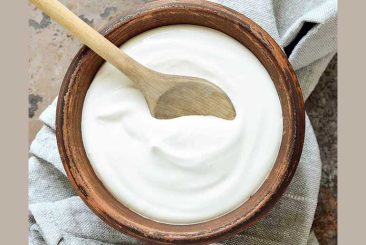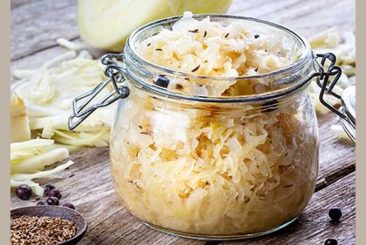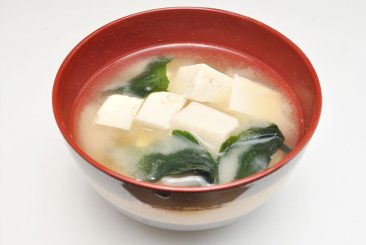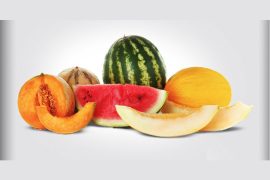A healthy gut is characterized by a diverse population of beneficial bacteria that play essential roles in digestion, nutrient absorption, and immune system regulation. Cultivating this diversity is crucial for enhancing overall health. Fermented foods offer a valuable contribution to gut health, as they are rich sources of beneficial probiotics, enzymes, and nutrients that support the maintenance of a thriving gut microbiome. Dr. Manoj Kutteri, CEO & Medical Director of Atmantan Wellness Centre, highlights three well-known fermented foods and their positive impact on gut health:
1. Yogurt:
Yogurt is a popular dairy product that undergoes a fermentation process involving the introduction of beneficial bacteria, such as Lactobacillus and Bifidobacterium strains. This fermentation transforms milk into a thick and creamy texture, while also enhancing its nutritional and probiotic content. Here are some key aspects of yogurt and its potential benefits:

Probiotic Richness: One of the primary reasons yogurt is revered for its health benefits is its probiotic content. Probiotics are live microorganisms that offer various advantages to the gut and overall health. Consuming yogurt regularly can introduce these beneficial bacteria to the digestive system, promoting a balanced gut microbiome.
Digestive Health: The probiotics in yogurt play a crucial role in digestion. They assist in breaking down complex foods components, making nutrients more accessible for absorption. This can contribute to smoother digestion and alleviate digestive discomfort, such as bloating or constipation.
Improved Nutrient Absorption: The fermentation process increases the availability of certain nutrients in yogurt, including B vitamins, calcium, and magnesium. These nutrients are essential for various bodily functions, such as bone health, nerve function, and energy metabolism.
Boosting Immune Function: A significant portion of the immune system is located in the gut. The probiotics found in yogurt can help regulate immune responses and support the body’s defense against harmful pathogens. A healthy gut microbiome is linked to a stronger immune system.
Lactose Digestion: The fermentation process of yogurt breaks down lactose, the natural sugar found in milk. This makes yogurt easier to digest for individuals who may be lactose intolerant, as the live cultures help metabolize lactose.
Choosing the Right Yogurt: When selecting yogurt, opt for plain, unsweetened varieties with live and active cultures. Greek yogurt is a popular option known for its rich protein content and creamier texture. Avoid overly processed or heavily sweetened yogurts, as added sugars can counteract some of the health benefits.
Incorporating Yogurt: Yogurt can be enjoyed on its own, as a base for smoothies, mixed with fruits and nuts, or used as a tangy topping for savory dishes. It’s a versatile ingredient that can be integrated into various meals and snacks to enhance both flavor and nutrition.
Yogurt is a nutritious and probiotic-rich foods that supports gut health, aids digestion, and provides a range of essential nutrients. By incorporating yogurt into a balanced diet, individuals can contribute to the maintenance of a healthy gut microbiome and overall well-being.
2. Kombucha:
Kombucha is a fermented tea beverage that has gained popularity for its potential health benefits, particularly its positive impact on gut health. It is made through a fermentation process that involves a symbiotic culture of bacteria and yeast (SCOBY). Here’s an overview of kombucha and its potential benefits:

Fermentation Process: Kombucha starts with brewing tea, usually black or green tea, to which sugar is added. The SCOBY, often referred to as the “kombucha mother,” is then introduced. This living culture metabolizes the sugar and converts it into various compounds, including organic acids, probiotics, enzymes, and antioxidants. The fermentation process typically takes around one to two weeks.
Probiotic Powerhouse: Kombucha is known for being a natural source of probiotics, which are beneficial bacteria that support gut health. These probiotics can contribute to a balanced gut microbiome by introducing diverse strains of bacteria. A healthy gut microbiome is associated with improved digestion, immune function, and overall well-being.
Digestive Health: The probiotics in kombucha can aid in digestion by promoting the breakdown of foods and enhancing nutrient absorption. This can be particularly beneficial for individuals who experience occasional digestive discomfort or bloating.
Detoxification and Antioxidants: Kombucha contains various organic acids, such as acetic acid and glucuronic acid, which may support the body’s detoxification processes. Additionally, kombucha contains antioxidants that help combat oxidative stress and reduce inflammation in the body.
Potential Immune Support: A significant portion of the immune system resides in the gut. By promoting a balanced gut microbiome, kombucha may indirectly support immune function and help the body defend against harmful pathogens.
Cautions and Considerations: While kombucha offers potential health benefits, it’s important to consume it in moderation. Due to the fermentation process, kombucha may contain trace amounts of alcohol and a small amount of residual sugar. Individuals with certain health conditions, such as diabetes or compromised immune systems, should exercise caution and consult a healthcare professional before adding kombucha to their diet.
Choosing Kombucha: When purchasing kombucha, look for brands that are certified organic and contain live cultures. Some commercial varieties may be pasteurized, which can reduce the probiotic content. Opt for unpasteurized options to maximize the potential probiotic benefits.
Incorporating Kombucha: Kombucha can be enjoyed as a refreshing beverage on its own or used as a base for homemade cocktails and mocktails. It can also be combined with fresh herbs, fruits, or natural sweeteners to create a customized flavor profile.
Kombucha is a fermented tea beverage that offers potential benefits for gut health, digestion, detoxification, and antioxidant support. When consumed mindfully as part of a balanced diet, kombucha can contribute to overall well-being and enhance the diversity of the gut microbiome.
3. Kimchi:
Kimchi is a traditional Korean dish that is widely recognized for its unique flavor and potential health benefits. It is a fermented foods dish, typically made from napa cabbage and a variety of seasonings. The fermentation process gives kimchi its distinctive tangy taste and contributes to its potential positive effects on gut health. Here’s an overview of kimchi and its potential benefits:

Fermentation Process: Kimchi is made by salting and brining napa cabbage or other vegetables, which helps to soften them and draw out excess moisture. The vegetables are then seasoned with a mixture of ingredients such as garlic, ginger, red pepper flakes, fish sauce, and other spices. The mixture is packed tightly into containers and left to ferment at room temperature. During fermentation, beneficial bacteria naturally present on the vegetables initiate the fermentation process, leading to the growth of probiotics and the development of the characteristic flavors of kimchi.
Probiotic Content: Like other fermented foods, kimchi is a source of live probiotics, which are beneficial microorganisms that can support gut health. The lactic acid bacteria produced during kimchi fermentation contribute to the growth of these probiotics. Consuming kimchi introduces these beneficial bacteria to the gut, helping to maintain a diverse and balanced gut microbiome.
Digestive Health: The probiotics found in kimchi can aid in digestion by promoting the breakdown of food and the absorption of nutrients. This can potentially alleviate digestive discomfort and improve overall gut function.
Rich in Nutrients: Kimchi is a low-calorie foods that is rich in vitamins, minerals, and antioxidants. It contains vitamins A, C, and K, as well as minerals like calcium and iron. These nutrients contribute to various bodily functions, including immune support, bone health, and blood clotting.
Anti-Inflammatory Properties: Kimchi’s ingredients, such as garlic and ginger, are known for their anti-inflammatory properties. Regular consumption of kimchi may help reduce inflammation in the body and contribute to overall health.
Potential Immune Support: The gut plays a significant role in the immune system. By promoting a healthy gut microbiome, kimchi may indirectly support immune function and help the body defend against infections.
Cautions and Considerations: While kimchi offers potential health benefits, it is important to be mindful of its sodium content, especially for individuals who need to watch their salt intake. Additionally, the spicy nature of kimchi may not be suitable for everyone, particularly those with sensitivities to spicy foods or certain health conditions.
Incorporating Kimchi: Kimchi can be enjoyed on its own as a flavorful side dish or added to various recipes to enhance flavor and nutrition. It can be used as a topping for salads, rice bowls, sandwiches, and more. Kimchi can also be used as an ingredient in cooking, such as in stir-fries, soups, and omelets.
Kimchi is a fermented foods dish that offers potential benefits for gut health, digestion, and overall well-being. Including kimchi as part of a diverse and balanced diet can contribute to a healthy gut microbiome and provide a range of nutrients and flavors.
4. Sauerkraut:
Sauerkraut is another well-known fermented foods that has been enjoyed for centuries and is known for its potential health benefits, particularly its positive impact on gut health. It is made from thinly sliced cabbage that undergoes a fermentation process. Here’s an overview of sauerkraut and its potential benefits:

Fermentation Process: Sauerkraut is made by massaging shredded cabbage with salt, which draws out its natural juices. The cabbage is then tightly packed into containers, and the salt and juices create an environment conducive to the growth of beneficial bacteria. Lactic acid bacteria naturally present on the cabbage initiate the fermentation process. As the cabbage ferments, it releases carbon dioxide and produces lactic acid, which gives sauerkraut its tangy flavor and acts as a natural preservative.
Probiotic Content: Sauerkraut is a source of live probiotics, similar to other fermented foods. The lactic acid bacteria that develop during fermentation populate sauerkraut, contributing to its potential gut health benefits. Consuming sauerkraut introduces these beneficial bacteria to the gut, supporting a balanced and diverse gut microbiome.
Digestive Health: Probiotics found in sauerkraut can assist in digestion by promoting the breakdown of foods and enhancing nutrient absorption. This can aid in alleviating digestive discomfort, such as bloating or gas, and contribute to overall gut function.
Nutrient Boost: Sauerkraut is a low-calorie foods that retains many of the nutrients present in cabbage, including vitamins C and K, as well as dietary fiber. The fermentation process may even enhance the bioavailability of certain nutrients, making them more easily absorbed by the body.
Improved Nutrient Absorption: The fermentation process in sauerkraut can break down compounds in cabbage that inhibit the absorption of certain minerals. This can lead to better absorption of minerals like iron and calcium.
Potential Immune Support: The gut plays a vital role in the immune system. By promoting a healthy gut microbiome, sauerkraut may indirectly support immune function and help the body defend against infections.
Cautions and Considerations: While sauerkraut can be a valuable addition to a healthy diet, its high salt content should be taken into consideration, especially for individuals who need to limit their sodium intake. Additionally, some store-bought sauerkraut may be pasteurized, which can diminish the probiotic content. Opt for unpasteurized sauerkraut to ensure you are getting the potential probiotic benefits.
Incorporating Sauerkraut: Sauerkraut can be enjoyed on its own as a side dish, added to salads, sandwiches, or wraps, or used as a topping for various dishes. It pairs well with a variety of foods and can add a tangy and crunchy element to your meals.
Sauerkraut is a fermented foods dish that offers potential benefits for gut health, digestion, and overall well-being. Including sauerkraut in your diet can introduce beneficial probiotics and contribute to a diverse and balanced gut microbiome, along with providing essential nutrients and flavors.
5. Miso:
Miso is a traditional Japanese fermented foods that has been a staple in Asian cuisine for centuries. It is made by fermenting soybeans or other grains with salt and a specific type of fungus called koji. Miso is known for its rich umami flavor and has a range of potential health benefits, particularly for gut health. Here’s an overview of miso and its potential benefits:

Fermentation Process: Miso fermentation involves the cultivation of koji, a type of mold that breaks down the starches in soybeans or grains into sugars. The koji is mixed with salt and the main ingredient (soybeans or grains) to create a paste. The mixture is then allowed to ferment for a certain period, during which beneficial microorganisms develop and contribute to the flavor and nutritional profile of miso.
Probiotic Content: Miso is a source of probiotics, though the types and amounts of beneficial bacteria can vary based on factors such as fermentation time and ingredients used. The fermentation process produces lactic acid bacteria, which contribute to the growth of probiotics. Consuming miso can introduce these beneficial bacteria to the gut, supporting a diverse and balanced gut microbiome.
Digestive Health: The probiotics found in miso can aid in digestion by promoting the breakdown of foods and enhancing nutrient absorption. This can help alleviate digestive discomfort and contribute to overall gut health.
Nutrient-Rich: Miso is rich in essential nutrients, including vitamins and minerals such as B vitamins (including B12 in some varieties), manganese, and zinc. These nutrients play various roles in the body, including supporting energy metabolism and immune function.
Amino Acids: Miso is a good source of amino acids, the building blocks of proteins. Amino acids are essential for various bodily functions, including tissue repair, hormone production, and enzyme activity.
Antioxidants: Miso contains antioxidants, such as phenolic compounds and flavonoids, which help neutralize harmful free radicals in the body and protect cells from oxidative stress.
Heart Health: Some research suggests that consuming miso may have a positive impact on heart health. The soybeans used in miso production contain compounds that are believed to contribute to cardiovascular health, including reducing cholesterol levels.
Cautions and Considerations: Miso is relatively high in sodium, so individuals who need to watch their salt intake should consume it in moderation. Additionally, some miso varieties may be high in histamine, which can trigger adverse reactions in sensitive individuals.
Incorporating Miso: Miso can be used in various dishes to add flavor and depth. It is commonly used to make miso soup, a traditional Japanese dish. Miso can also be used as a marinade, sauce, or seasoning for vegetables, tofu, and meats. It can be blended into dressings, dips, or even used to flavor grains like rice or quinoa.
Miso is a fermented foods with potential benefits for gut health, digestion, and overall well-being. Including miso as part of a balanced diet can introduce beneficial probiotics and provide essential nutrients and flavors. It offers a versatile and flavorful way to enhance the nutritional value of your meals while potentially supporting your gut microbiome.
Incorporating these fermented foods into your diet can contribute to a diverse and balanced gut microbiome. However, it’s important to note that individual responses to fermented foods may vary. If you’re new to these foods or have digestive sensitivities, start with small portions to assess your body’s reaction. Additionally, opting for homemade or minimally processed versions of these foods can help ensure you’re getting the maximum probiotic benefits.
Disclaimer:
The information contained in this article is for educational and informational purposes only and is not intended as a health advice. We would ask you to consult a qualified professional or medical expert to gain additional knowledge before you choose to consume any product or perform any exercise.









